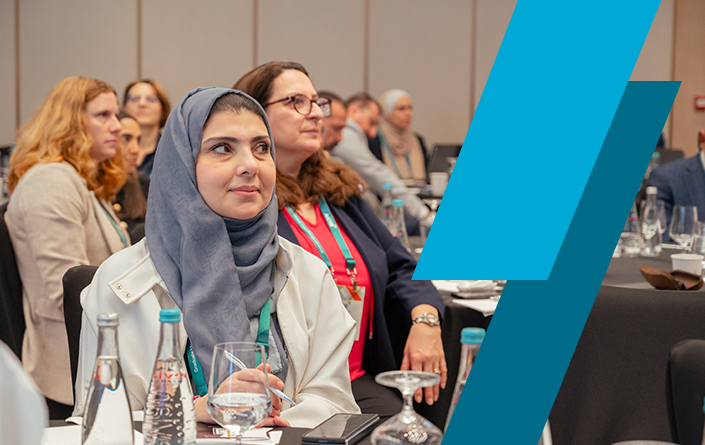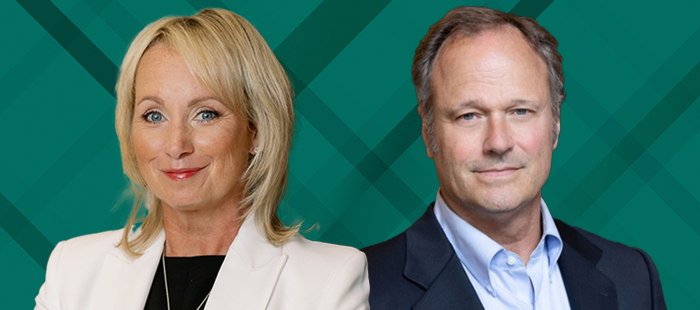Meeting a Regional Need for Fintech Professionals
- The Fintech Academy is housed at Georgia State but accepts students from all 26 institutions that make up the University System of Georgia.
- Industry partners help develop content, offer students opportunities to work on real-world projects, and provide representatives to act as speakers and mentors.
- In addition to teaching specialized courses, the academy organizes podcasts, a speaker series, career fairs, and a job board.
In 2018, business leaders from fintech companies across Georgia approached the University System of Georgia (USG) with a question: Could USG design a program that would create a pipeline of talent with the most sought-after skills needed by the fintech industry?
The state is home to more than 200 companies that use technology to enhance or automate the traditional products and services offered by financial services companies. Major fintech companies in Georgia generate more than 37 billion USD in annual revenues, which puts the state third in the U.S. behind California and New York. Companies in Georgia are particularly dominant in the digital payments sector of the industry: Approximately 70 percent of all global debit and credit card financial transactions are processed by companies headquartered in Atlanta. Overall, the fintech ecosystem in Georgia employs nearly 50,000 people.
To meet the needs of this essential and growing industry, USG created the Georgia Fintech Academy, which was co-founded by and is housed at Georgia State University’s Robinson College of Business in Atlanta. The academy began operations in 2019 when its core curriculum was launched online and became accessible to any student attending one of the 26 public institutions that make up USG. Its creation was recently described in a 2023 submission to AACSB’s Innovations That Inspire initiative.
While the Georgia Fintech Academy was designed as a workforce initiative, its location in Georgia and its accessibility from any university in the state system mean that it “provides equal opportunities for people from all backgrounds,” says Laura Gibson-Lamothe, executive director. Of the 5,200 students who have taken at least one fintech course, 72 percent have been from underrepresented groups and 43 percent have been women. “Through the academy, our students have developed some of the most sought-after skills in the region,” says Gibson-Lamothe.
Creating the Academy
It will come as no surprise that organizers found it challenging to design a curriculum that would work across the University System of Georgia since each participating school has its own structures and degree requirements. To make it possible for students at the different institutions to register for Fintech Academy courses and apply the credits toward their degrees, each participating school evaluates each course commissioned by the Fintech Academy, decides if it will accept the course into its catalog, and determines how that unit will count toward meeting a degree requirement.
The Fintech Academy’s initial curriculum is known as the Fintech Core. Developed by faculty members at Georgia State University, it is a foundational overview of the fintech ecosystem. The courses take deep dives into banking and fintech, information security for fintech, financial data analytics, and financial technologies. More recently, faculty members at another USG institution, Kennesaw State University, have developed a series of courses that focus on digital payments.
All Fintech Academy courses are offered asynchronously online three times a year, in the fall, spring, and summer semesters. Total enrollment in the fall and spring semesters has averaged around 1,000 students per semester, with about 50 students attending each class. Students learn about the Fintech Academy from their universities, their professors, student advisors, student listservs, student events, career fairs, social media, and the Fintech Academy website.
Students must be admitted through their home schools, and they are encouraged to work with their advisors to determine how many courses to take each semester. The cost of each Fintech Academy course is mandated by the University System of Georgia and is approximate to the tuition at most of the USG institutions.
To make it possible for students at the different institutions to register for Fintech Academy courses and apply the credits toward their degrees, each participating school evaluates each course commissioned by the academy.
Each course is worth three credit hours at the student’s home university, where credits count toward a degree or a certificate, depending on the school. Some institutions offer certificates or minors that require a set number of courses from the Fintech Academy.
For instance, the Robinson College offers three fintech certificates. A graduate certificate in fintech innovation can be earned as a standalone credential, but course credits can be applied to Robinson’s Flexible MBA and MS in Finance programs. The certificate also can be embedded in either degree. An undergraduate certificate in fintech is open to students majoring in computer information systems or finance, and an undergraduate certificate in cybersecurity for fintech is open to students majoring in computer information systems or finance.
Partnering With Industry
Because fintech is constantly and rapidly changing, the academy works closely with industry partners to keep content up-to-date and relevant. Corporate representatives not only help faculty develop course content, but also frequently speak to classes and act as student mentors.
Additionally, industry partners provide opportunities for students to work on action innovation projects—real-world problems for which companies are seeking solutions. Company representatives mentor student teams on these projects throughout the semester and participate in final presentations.
The projects vary widely. For instance, in a recent class, students developed a risk management framework for an institution offering a “buy now, pay later” option. In another project, students came up with creative ways merchants can accept cryptocurrencies as payment.
Promoting Diversity
The Georgia Fintech Academy is launching a different kind of corporate partnership this June in the form of a virtual six-week supplier development program called “Banking and Fintech for Diverse Suppliers.” The custom executive education program was created for Fiserv, a global provider of payments and financial services technology, and Synchrony, a consumer financial services company. The two companies partnered with Robinson’s Executive Education Office and the Fintech Academy to develop the curriculum, which will be taught by company reps as well as faculty from the Robinson College.
The Fiserv-Synchrony program is aimed at sales leaders, executives, and business owners from historically marginalized groups, including women; veterans; and people who are disabled, LGBTQ+, or from underrepresented racial and ethnic populations. The goal is to increase the pool of diverse suppliers who have the skills and knowledge to serve the financial services sector. The inaugural cohort, which will include no more than 40 participants, will be selected by Fiserv and Synchrony.
The goal of the supplier development program is to increase the pool of diverse suppliers who serve the financial services sector.
“While the opportunity is substantial, it is challenging for businesses to become suppliers to banks and fintechs due to the highly specialized nature of these industries,” explains Stephen Coogan, head of procurement at Fiserv. “Equipping potential suppliers with greater knowledge about these industries breaks down barriers, increases opportunities to engage with corporations, and scales supplier revenues, all while growing the financial services and technology ecosystem.”
Once suppliers successfully complete the course, they may apply for company-level diverse supplier certifications or recertifications with third-party organizations in their regions. For instance, diversity status is certified by groups such as Disability: IN, Minority Supplier Development United Kingdom, National LGBT Chamber of Commerce, National Minority Supplier Development Council, National Veteran Business Development Council, National Veteran-Owned Business Association, WeConnect International, and Women’s Business Enterprise National Council.
Providing Resources
The Georgia Fintech Academy supplements its courses for undergraduates, graduate students, and executives with additional events and resources:
A podcast series. In each episode, Gibson-Lamothe interviews a current student alongside an industry professional from a company such as FIS Global, Visa, U.S. Bank, Square, and PayPal. Several courses at the academy use the podcast and speaker series as primary material and a means to keep the classroom experience current. To date, the academy has produced more than 70 episodes, which have been streamed more than 8,000 times.
A speaker series. Each semester, the academy hosts between 20 and 25 events featuring thought leaders from the fintech industry. Delivered in a hybrid format, each presentation draws 50 to 100 students.
Career fairs. Between 300 and 400 students attend a fintech career fair each month.
A job board. Any fintech company can post on this board, which at any given time typically lists 2,500 to 3,000 jobs.
Measuring Impact
The combination of classes, events, career fairs, and other opportunities has had a measurable impact: Since the academy was launched three years ago, more than 5,000 students have taken a Fintech Academy course and more than 1,650 students have been placed in fintech positions. Academy representatives expect that number to double in the next two years.
In the future, administrators hope to keep expanding the opportunities at the Fintech Academy—not simply increasing the number of students who attend courses, but also giving them options to engage as early as their first year on campus. In addition, notes Gibson-Lamothe, the plan is to grow the portfolio of nondegree executive offerings and continue working with industry partners. This will “ensure the innovation ecosystem in Georgia is robust and vibrant.”






